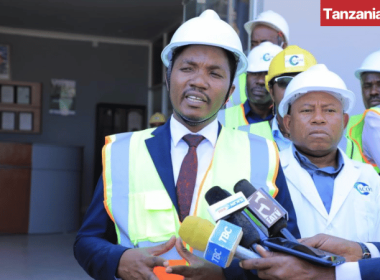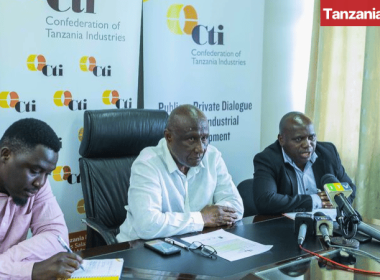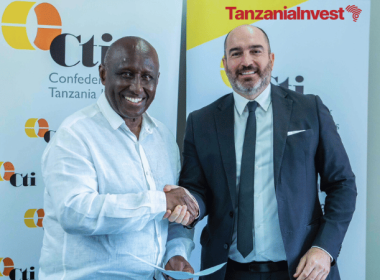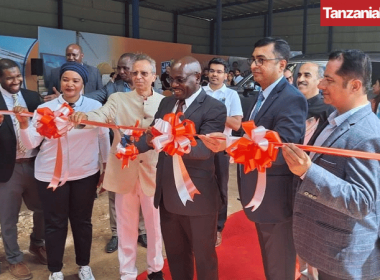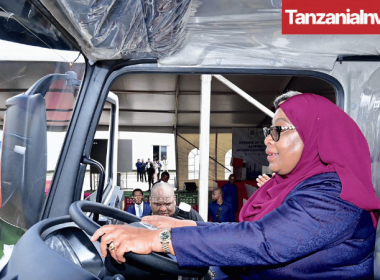Industry
Tanzania’s industrial sector production reached USD 13.5 billion (33% of GDP) in 2018, compared to USD 9.1 billion in 2014, marking an increase of 48%.
The government aims to make Tanzania a semi-industrialized nation by 2025, with a significant contribution from the industrial sector to the GDP.
The industrial sector of Tanzania comprises several key subsectors that significantly contribute to its GDP, namely construction, manufacturing, mining, electricity supply, water supply, sewerage, and waste management.
1. Manufacturing: As the powerhouse of Tanzania’s industry, the manufacturing subsector is pivotal, representing about 23.2% of the GDP in 2022. This diverse sector includes industries ranging from food processing and textiles to clothing, footwear, chemicals, pharmaceuticals, and construction materials, showcasing Tanzania’s expanding industrial capabilities.
2. Mining and Quarrying: Contributing approximately 10% to the GDP, this subsector is a vital component of Tanzania’s industrial production. It focuses on extracting and processing valuable mineral resources like gold, tanzanite, diamonds, gemstones, coal, and limestone, underlining Tanzania’s rich mineral resources and its appeal for mining investments.
3. Electricity, Gas, and Utility Services: This essential subsector, contributing about 4.1% to the GDP, is responsible for the generation and distribution of electricity, gas, steam, and air conditioning. Its role is crucial in supporting Tanzania’s industrial activities and enhancing nationwide energy access.
4. Water and Waste Management: Integral to public health and environmental sustainability, this subsector manages water supply, sewerage, waste management, and remediation activities. It adds around 2.7% to Tanzania’s GDP, highlighting its importance in the Tanzanian industrial landscape.
5. Construction: contributed 10.1% to the GDP in 2022.
According to the Bank of Tanzania (BoT), the growth in the construction sector was attributed to growing public investments (construction of the standard gauge railway (SGR), bridges, airports, roads, and expansion of ports), as well as ongoing rehabilitation of meter-gauge railway.
Manufacturing in Tanzania
The manufacturing sector in Tanzania has demonstrated substantial growth in recent years. The latest data reveals:
- In 2019, the manufacturing output was $5.19 billion, marking a 12.73% increase from 2018.
- In 2020, the output rose to $5.31 billion, a 2.28% increase from 2019.
- The year 2021 saw a further increase to $5.67 billion, a 6.85% increase from 2020.
- In 2022, the manufacturing output reached $6.20 billion, a 9.32% increase from 2021.
In 2022, Tanzania’s manufacturing sector emerged as the most significant component of its industrial landscape, contributing 23.2% to the nation’s GDP.
This sector primarily focuses on light manufacturing industries, including textiles, garments, and food processing.
Additionally, Tanzania is witnessing an expansion in its heavy manufacturing sector, encompassing areas like cement production, steel manufacturing, and pharmaceuticals.
The main manufacturing goods in Tanzania include:
- Textiles and Apparel: A major export sector, contributing significantly to employment and foreign exchange earnings.
- Processed Food and Beverages: This sector has seen growth due to increased domestic demand and export potential.
- Cement: With the construction boom, cement production has increased, making Tanzania one of the largest cement producers in East Africa.
- Iron and Steel Products: Essential for the construction and automotive industries, this sector is growing in response to local and regional demand.
Tanzania Agribusiness
Currently, the majority of crops in Tanzania are marketed in their raw forms, while value-addition to agricultural products is mostly on a small-scale secondary level.
Still, the Tanzanian agriculture value-added net output increased by 46% during the period 2012–2017, from USD 10.5 billion to USD 15.3 billion.
Currently, value-added products in Tanzania include cotton yarn, manufactured coffee and tobacco, sisal products (yarn and twine), and wheat flour.
In line with the 2025 Vision of the Ministry of Agriculture, Food and Cooperatives of Tanzania, there should be at least two new products developed from each of the staple crops, horticultural crops, livestock, and fisheries by that year.
Industrialization of Tanzania
The Government of Tanzania focuses on industrialization as the main catalyst to transform the economy, generate sustainable growth, and reduce poverty.
The Government of Tanzania introduced its Sustainable Industrial Development Policy (SIDP) in 1996 to phase itself out of investing directly in productive activities and let the private sector take that role.
The main purpose of the Government’s SIDP is to design a plan for industrializing Tanzania so that the country becomes semi-industrialized by 2025.
In order for Tanzania to become a semi-industrialized country, the contribution of manufacturing to the national economy must reach a minimum of 40% of the GDP by 2025.
Foreign Direct Investments (FDIs) are expected to provide the capital for the desired industrial development.
Tanzania Export and Special Economic Zones
In 2002 Tanzania established its Export Processing Zones (EPZ) scheme, to provide for the establishment of export-oriented investments within the designated zones with the view of creating international competitiveness for export-led economic growth.
Tanzania’s EPZs are conducive environments for the promotion of exports of products that use local materials, such as textiles and garments, leather goods, agro-processing, and the lapidary industry.
In addition, in 2006 the Special Economic Zones (SEZ) scheme was introduced, to promote quick and significant progress in economic growth, export earnings, and employment creation as well as attract private investment in the form of both Foreign Direct Investments (FDI) and Domestic Direct Investment (DDI) from all productive and service sectors.
Last updated: 27th November 2023







